Search
Remove Ads
Advertisement
Search Results
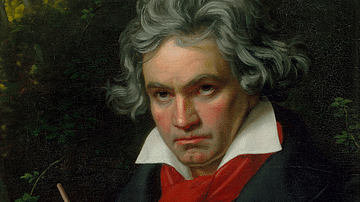
Definition
Ludwig van Beethoven
Ludwig van Beethoven (1770-1827) was a German composer of Classical and Romantic music; he is widely regarded as one of the greatest musicians to have ever lived. Most famous for his nine symphonies, piano concertos, piano sonatas, and string...
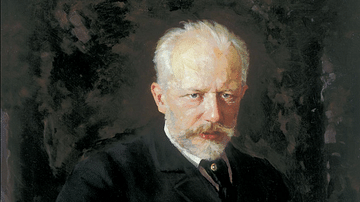
Definition
Pyotr Ilyich Tchaikovsky
Pyotr Ilyich Tchaikovsky (1840-1893) was a Russian composer most famous for his symphonies, the ballets Swan Lake, The Sleeping Beauty, and The Nutcracker, and the operas Eugene Onegin and The Queen of Spades. A composer of innovative and...
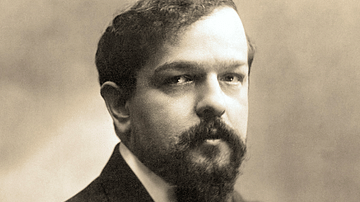
Definition
Claude Debussy
Claude Debussy (1862-1918) was a French composer most famous for his piano and orchestral music. Works like Clair de Lune have become piano standards while La Mer, with its unusual use of instruments and impressionistic use of waves of sounds...
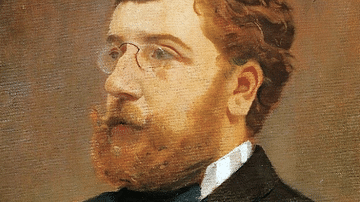
Definition
Georges Bizet
Georges Bizet (1838-1875) was a French Romantic composer best known for his opera Carmen and the instrumental music for the play L'Arlésienne. None of his earlier operas had enjoyed any great success, and even Carmen took several months to...
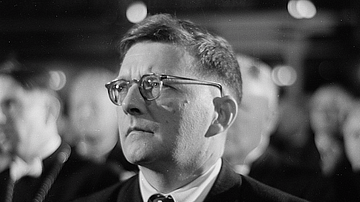
Definition
Dmitri Shostakovich
Dmitri Shostakovich (1906-1975) was a Russian composer of operas, ballets, concertos, string quartets, and 15 symphonies. Shostakovich was frequently denounced by the repressive Soviet state, but in some periods, he also gained official favour...
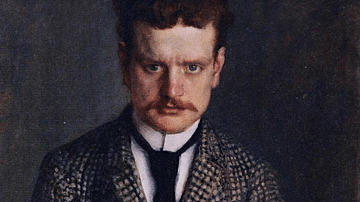
Definition
Jean Sibelius
Jean Sibelius (1865-1957) was a Finnish composer famous for his symphonies, the symphonic poem Finlandia, and the Karelia Suite. Although Sibelius inspired a music revival in his native country, became a figurehead for the Finnish nationalist...
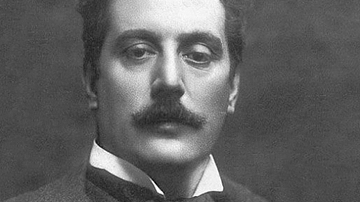
Definition
Giacomo Puccini
Giacomo Puccini (1858-1924) was an Italian composer best known for his operas La Bohème, Tosca, Madama Butterfly, and Turandot. Puccini drew inspiration from a wide range of literary sources, and his late Romantic music with its immortal...
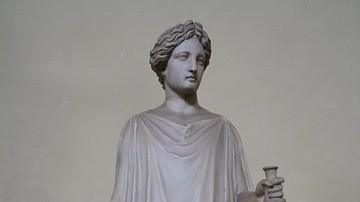
Article
Ancient Greek Clothing
Ancient Greek clothing developed from the Minoan Civilization of Crete (2000-1450 BCE) through the Mycenean Civilization (1700-1100 BCE), Archaic Period (8th century to c. 480 BCE) and is most recognizable from the Classical Period (c. 480-323...
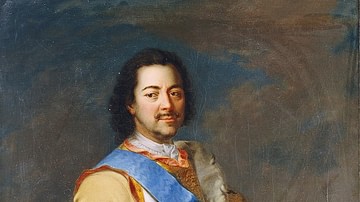
Definition
Peter the Great
Peter I of Russia (Peter the Great) was the Tsar of Russia from 1682-1721 and Emperor of Russia from 1721-1725. During his long reign, Peter had absolute power and brought real change to Russia, including building its first navy, introducing...

Definition
Einsatzgruppen
Einsatzgruppen ('deployment groups') were secret Nazi killing units, who systematically sought out and murdered civilians identified as enemies of the Third Reich. Operating without any legal restrictions in territories newly conquered by...